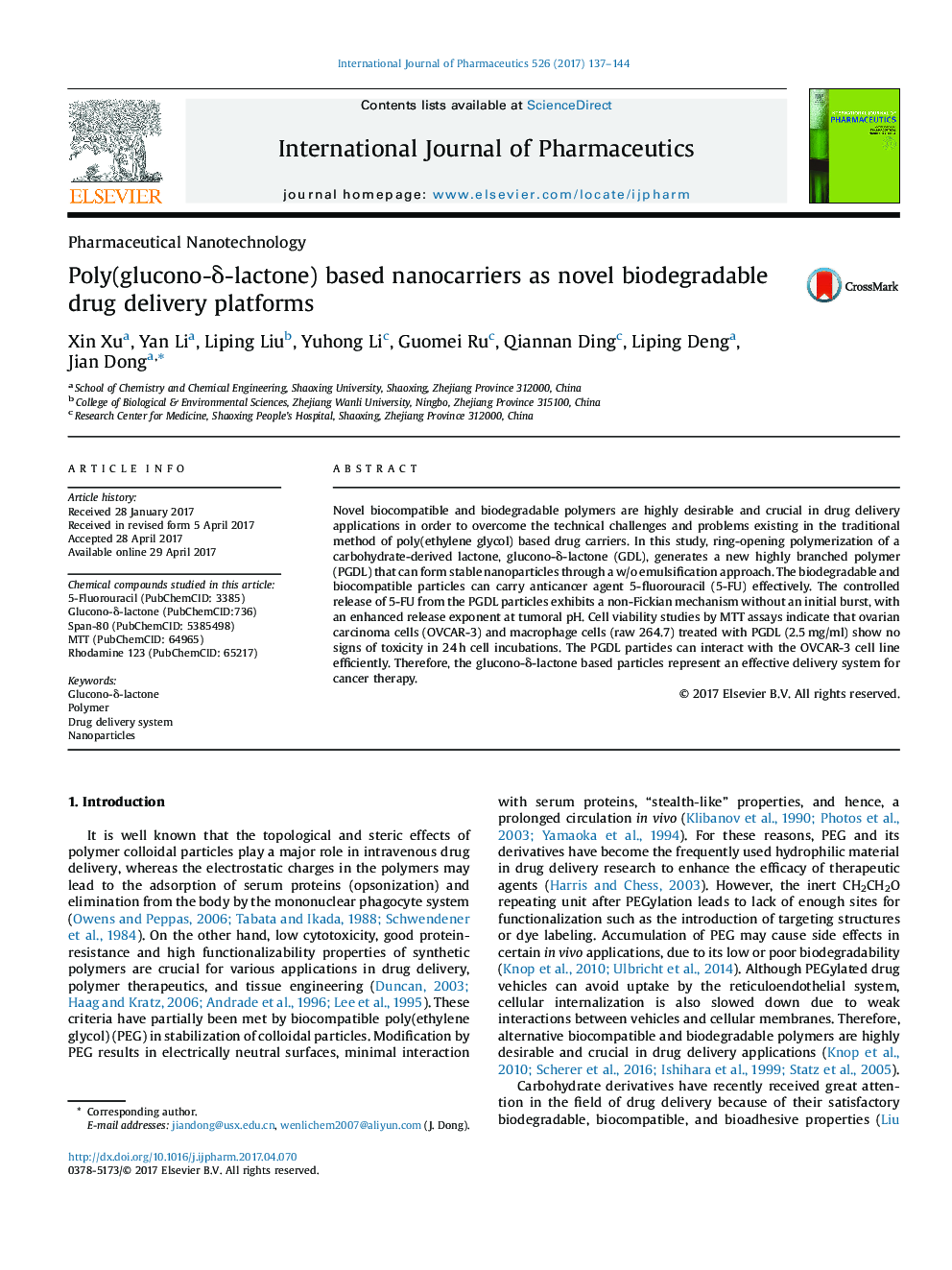| Article ID | Journal | Published Year | Pages | File Type |
|---|---|---|---|---|
| 5550272 | International Journal of Pharmaceutics | 2017 | 8 Pages |
Novel biocompatible and biodegradable polymers are highly desirable and crucial in drug delivery applications in order to overcome the technical challenges and problems existing in the traditional method of poly(ethylene glycol) based drug carriers. In this study, ring-opening polymerization of a carbohydrate-derived lactone, glucono-δ-lactone (GDL), generates a new highly branched polymer (PGDL) that can form stable nanoparticles through a w/o emulsification approach. The biodegradable and biocompatible particles can carry anticancer agent 5-fluorouracil (5-FU) effectively. The controlled release of 5-FU from the PGDL particles exhibits a non-Fickian mechanism without an initial burst, with an enhanced release exponent at tumoral pH. Cell viability studies by MTT assays indicate that ovarian carcinoma cells (OVCAR-3) and macrophage cells (raw 264.7) treated with PGDL (2.5 mg/ml) show no signs of toxicity in 24 h cell incubations. The PGDL particles can interact with the OVCAR-3 cell line efficiently. Therefore, the glucono-δ-lactone based particles represent an effective delivery system for cancer therapy.
Graphical abstractDownload high-res image (206KB)Download full-size image
